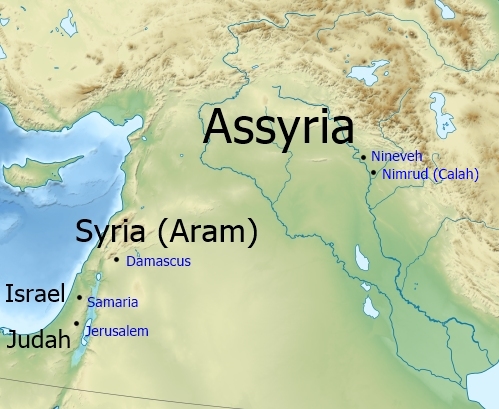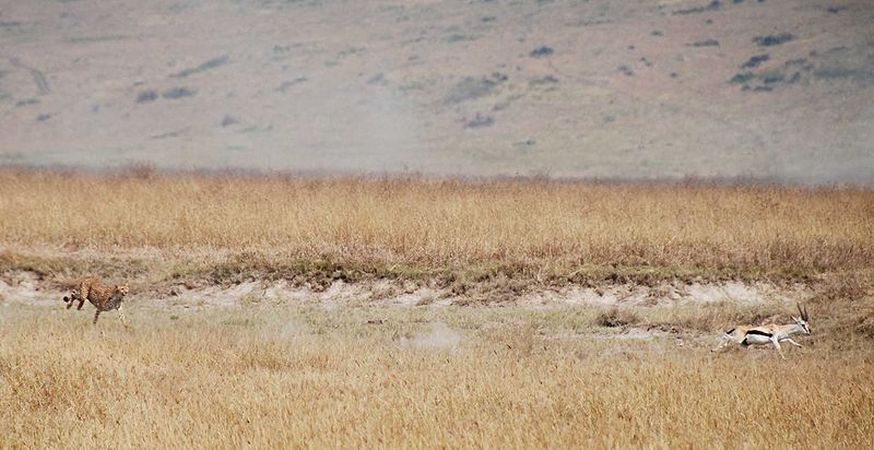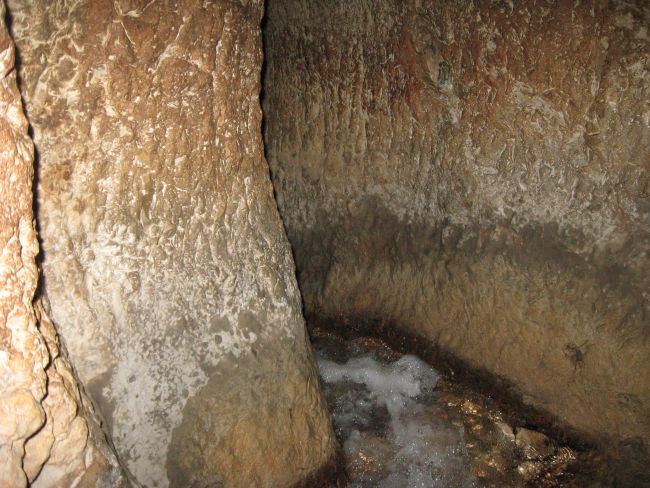Home
Chapter 5
The Children (Part One) In Isaiah chapters seven through nine
there are four stories about children. Two of the stories are
somewhat straightforward, and we will look at those two first. The
other two stories are a little more complex. We will look at those
last. Some acquaintance with the historical
background is important to an understanding of the stories of the
four children. The prophecies about the first three children take
place at the time of what is known as the Syro-Ephraimitic [or
Syro-Ephraimite] War (ca. 734-732 B.C.). Four kingdoms or empires are part of the
historical background of this section of the book of Isaiah. These
four are the Assyrian Empire, Syria (also known as Aram), the
northern kingdom of Israel, and the southern kingdom of Judah. The
northern kingdom of Israel is also referred to as Ephraim, after its
largest and most influential tribe. The most powerful of these four
was the Assyrian Empire. It was the dominant world power of the
eighth century B.C. The Assyrian emperor and the Assyrian
capital are not mentioned in these chapters, although they are
mentioned elsewhere in the Old Testament. The emperor was Tiglath-pileser III (also known as Pul or Pulu), and the capital at this point in time was Nimrud (also known as Calah
or Kalhu). Nimrud was one of four historically prominent Assyrian
capitals during its history. Earlier in Assyrian history, Assur (Ashur) was
the capital. Following Nimrud were Khorsabad and, the most
famous Assyrian capital, Nineveh. Lesser in power was Syria (not
Assyria), also known as Aram. Syria and the northern kingdom of Israel
made an alliance with each other. It is suggested by some that the
purpose of the coalition between King Rezin of Syria and King Pekah
of Israel was to protect themselves from Assyria. It is further
argued that they urged the southern kingdom of Judah and its king,
Ahaz to join them, but that Ahaz refused. To round out the other background
details that are part of the story, Syria's capital is Damascus, Israel's capital is the city of Samaria, and Judah's capital is Jerusalem. Kingdom King/Emperor Capital City Assyria Tiglath-pileser III Nimrud Syria (Aram) Rezin Damascus Israel (Ephraim) Pekah Samaria Judah Ahaz Jerusalem Syria and Israel launched attacks on
Judah and hoped to depose King Ahaz and replace him with the "son
of Tabeel" (Isaiah 7:6), who was likely of anti-Assyrian
sentiment and may have favored rebelling against Assyria, also.
Syria and Israel had much initial success. Although Syria was not
able to capture Jerusalem (II Kings 16:5),
they did defeat the Judean armies of King Ahaz and take many of the
people of Judah captive to the Syrian capital city, Damascus (II
Chronicles 28:5). Syria's ally, the northern kingdom of Israel,
killed 120,000 people of Judah and took 200,000 into captivity to
Israel's capital city, Samaria (II Chronicles 28:6-8). The attacks by Syria and Israel on
Judah were instigated by God as punishment of Judah because of her
sinful ways (II Kings 15:37; II Chronicles 28:5-6,9,19). The LORD had humbled Judah because of Ahaz king of Israel,
for he had promoted wickedness in Judah and had been most unfaithful
to the LORD. These wicked ways included, among other things,
idolatry and human sacrifice. Ahaz was twenty years old when he
began to reign, and he reigned sixteen years in Jerusalem. And he did
not do what was right in the eyes of the LORD, like his father David,
but walked in the ways of the kings of Israel. He even made molten
images for the Baals; and he burned incense in the valley of the son
of Hinnom, and burned his sons as an offering, according to the
abominable practices of the nations whom the LORD drove out before
the people of Israel. And he sacrificed and burned incense on the
high places, and on the hills, and under every green tree. The wickedness of Judah had increased
under King Ahaz. The prophet Isaiah urged King Ahaz to trust in God
(Isaiah 7:3-16). However, Ahaz was more disposed to trust in the emperor
Tiglath-pileser of Assyria, which he did (II Kings 16:7ff.), although
Isaiah had warned that this would lead to Judah's subjugation
under Assyria (Isaiah 7:17ff). So Ahaz sent messengers to Tiglath Pileser king of Assyria, saying,
"I am your servant and your son. Come up and save me out of the hand of
the king of Syria and out of the hand of the king of Israel, who rise up
against me." Ahaz took the silver and gold that was found in the LORD's
house, and in the treasures of the king's house, and sent it for a present
to the king of Assyria.
The result of Ahaz's trust in
Assyria seemed to have accomplished some good at first, with Assyria
defending Judah against Syria and Israel, destroying the Syrian
capital, killing the Syrian king, and taking the Syrian people and
many of the people of the northern kingdom of Israel into captivity. The king of Assyria listened to him; and the king of Assyria went
up against Damascus and took it, and carried its people captive to Kir,
and killed Rezin. Ten years later Assyria would also
destroy Samaria, the capital city of the northern kingdom of Israel.
"Samaria" would no longer be the name of the capital of
an independent Israelite kingdom but the name of a new Assyrian
province. Within a few decades, very many of its inhabitants would
be dispersed to the various winds of the Empire and replaced with
people from non-Israelite regions and cultures. The northern kingdom
of Israel would cease to exist as a nation.
So Judah was freed from the
oppression of Syria and Israel, but this came with a price. In an
effort to curry favor with Assyria, Ahaz took the treasures, not only
from his palace, but also from the Temple itself, and gave them to
Assyria (II Kings 16:8; II Chronicles 28:21). Judah became a vassal
state of Assyria, subject to its whims and desires. Assyria began to
oppress Judah, just as Syria and Israel had done previously. Then Tiglath-pileser king of Assyria came to Ahaz but afflicted
him rather than strengthening him. Although Ahaz had taken a portion
from the house of the LORD, from the royal palace, and from the princes
and had presented it to the king of Assyria, it did not help him. Perhaps in an attempt to appease the
Assyrian Empire, or perhaps to express his trust in sources other
than God, Ahaz closed the Temple (II Chronicles 28:24), mutilated or
destroyed the Temple's sacred contents (II Kings 16:17; II Chronicles
28:24), and instituted the worship of foreign gods in the Temple
courts and throughout the nation (II Kings 16:10ff.; II Chronicles
28:23,25). In the time of his distress he became yet more faithless to the
LORD--this same King Ahaz. For he sacrificed to the gods of Damascus
that had defeated him and said, "Because the gods of the kings of Syria
helped them, I will sacrifice to them that they may help me." But they
were the ruin of him and of all Israel. And Ahaz gathered together the
vessels of the house of God and cut in pieces the vessels of the house
of God, and he shut up the doors of the house of the LORD, and he made
himself altars in every corner of Jerusalem. In every city of Judah
he made high places to make offerings to other gods, provoking to anger
the LORD, the God of his fathers. This is the immediate historical
background of the first three of the four children mentioned in
chapters seven through nine. The events surrounding the oracle about
the fourth child would occur a few years later. The first story of the four children is
found in the seventh chapter of the book of Isaiah, verses one
through nine. Chapter seven picks up at the earliest stages of the
Syro-Ephraimitic War. We're introduced in this passage
to the first of the children that we will meet. His name is
Shearjashub. The name means "a remnant shall return".
Even in its Hebrew setting in which names were important and had
special meanings, it would be an unusual name and one that would draw
attention. Can you imagine the ancient equivalent of a teacher
calling roll in class? "Benjamin?" "Here." The presence of Isaiah's
son was a pledge by God that the nation would not be
utterly destroyed. The stories of each of the four children are messages
from God either based on the names of the children or on promises
associated with the children. "Behold, I and the children whom the LORD has given me are signs
and portents in Israel from the LORD of hosts, who dwells on Mount Zion." Isaiah refers to the kings of Syria and
Israel as "these two smoldering stumps of firebrands".
They were at one time ablaze, but their fire has died, and they are
almost burned out. Don't be afraid of them. Their power is
almost gone. Isaiah, instead of referring to King
Pekah of Israel by his name, calls him "the son of Remaliah".
In ancient Hebrew society, people were often referred to as "the
son of" whoever their father was. However, their own name was
also typically used first. But to simply call someone "the son
of" without mentioning their own name could, in certain
circumstances, be seen as a way of minimizing their importance,
especially if their father was not of any renown or was deemed to be
insignificant.
For example, in the conversation
between King Saul and his son Jonathan in I Samuel 20, Jonathan
refers to David by David's own name, but Saul calls neither David nor
Jonathan by their own name: So, when Isaiah refers to King Pekah as
"the son of Remaliah", it is a way of lessening his
significance. In light of this, it is amazing to note
the humility of Jesus in appropriating for himself the title he uses
more than any other--"the Son of Man". In verse seven, God through Isaiah says
"It shall not stand." The lineage of David will
continue, as God has promised. A remnant will continue. Ironically,
it is only God who will cause this to be so, yet it is God that Ahaz
will not trust in. He will trust in Assyria instead. Ahaz believes
that Assyria, the mightiest nation that the world had ever seen, is
the dominant power of the day. But God is the dominant power. As
seen in an earlier chapter, Assyria is merely God's puppy dog,
who comes whenever God whistles. He will raise a signal for a nation
afar off, Even the mightiest nation that the
world had ever seen is merely God's puppy dog. Don't trust in the
nations. Trust in God. Through the name Shearjashub, God promises that "a remnant shall return."
God has always been determined to preserve a remnant. During the days of Noah, when the world
was enveloped in wickedness, and God determined to destroy the world,
he made special arrangements to save Noah and his family. In the days of the Wilderness
Wanderings, when the people of Israel thought that the giants of
Canaan were more powerful than the God of All the Earth, God
determined that none from that generation would enter the land of
Canaan, except for Joshua and Caleb, who found favor in his sight. In the days of Gideon, when the
Midianites were oppressing the people of Israel, Gideon assembles an
army of 32,000 men to go to war. God said that this was too many. He eventually whittles down the
army to 300 men, who routed the Midianite army. In the days of Elijah when Baal worship
dominated the land, Elijah was despondent. He cries out to God and
says, "I have been very jealous for the LORD, the God of hosts; for the children of Israel have forsaken your covenant,
thrown down your altars, and slain your prophets with the sword, and I, even I only, am left; and they seek my life, to take it away."
God responds by saying,
"I have reserved for myself seven
thousand men who have not bowed the knee to Baal." When wicked Queen Athaliah attempted to
destroy the royal line, and in essence the Messianic line as well,
she thought that she was successful. But there was an infant child,
Joash, who was hidden in the Temple for seven years, and who eventually
became king, and who continued the line of the Messiah. Even when the Babylonian army conquers
Jerusalem and takes the final tribe into captivity, making the nation
seem to be hopelessly dead, Ezekiel sees a vision of dry bones with
God asking him, "Can these bones live?" Ezekiel then
sees the hopelessly dry bones connect one to another and live again,
as a promise that the nation would live again. In Ezekiel chapter
nine, with the nation seemingly hopelessly in captivity, Ezekiel has
a vision in which God gives orders to an angelic figure, And the LORD said to him, "Pass through the city, through Jerusalem, and put a mark on the foreheads
of the men who sigh and groan over all the abominations that are committed in it." A remnant of the nation would
miraculously come back from captivity and live again. After returning from Babylonian
Captivity, we see the idea of the remnant in part of Ezra's prayer: And after all that has come upon us for our evil deeds and for our
great guilt, seeing that you, our God, have punished us less than our
iniquities deserved and have given us such a remnant as this, shall we
break your commandments again and intermarry with the peoples who practice
these abominations? Would you not be angry with us until you consumed us,
so that there should be no remnant, nor any to escape? O LORD, the God of
Israel, you are just, for we are left a remnant that has escaped, as it is
today. The idea of the remnant is found in
numerous places in the Old Testament. For example, in the book of
Amos: Hate evil, and love good, The idea of the remnant is found
frequently in the books of Jeremiah, and Amos, and Micah...and also
frequently in the book of Isaiah. For example, when the Assyrian Kingdom
destroys and takes into captivity the ten tribes of the northern
kingdom of Israel, and the Assyrian army stands outside the gates of
Jerusalem, God listens to the prayer of Hezekiah and preserves the
nation. Isaiah prophesies to Hezekiah, saying this: And the surviving remnant of the
house of Judah shall again take root downward, and bear fruit upward;
for out of Jerusalem shall go forth a remnant, and out of Mount Zion
a band of survivors. The zeal of the LORD of hosts will
accomplish this. Again he says, In that day the LORD of hosts will
be a crown of glory, In the New Testament we see King Herod trying unsuccessfully to destroy the remnant by killing all the male children under two years old in the area
in and around Bethlehem (Matthew 2:16). The flight of Jesus' family to Egypt enabled them to evade Herod's scheme (Matthew 2:13-15a).
When the Messiah began his earthly ministry, he was
mostly rejected by the Jewish people, as it had been prophesied. The
Old Covenant, which had been meant to lead people to Christ, was
nailed to the cross. A New Covenant was inaugurated as had also been
prophesied. Eventually the Romans would come and conquer Jerusalem
and disperse the Jewish people to the four winds. God would still
have a remnant people, but it would be a remnant based on faith, not
on flesh. John the Baptist would say, "And do not presume to say to
yourselves, `We have Abraham as our father'; for I tell you, God is
able from these stones to raise up children for Abraham." Paul would write, For not all who are descended from
Israel belong to Israel, and not all are children of Abraham because
they are his descendants; but "Through Isaac shall your
descendants be named." This means that it is not the children
of the flesh who are the children of God, but the children of the
promise are reckoned as descendants. He would also write, For he is not a real Jew who is one
outwardly, nor is true circumcision something external and physical.
He is a Jew who is one inwardly, and real circumcision is a matter of
the heart, spiritual and not literal. And again, So too at the present time there is
a remnant, chosen by grace. The church today represents that
remnant. In Galatians chapter six, Paul refers to the church by a
new name: Peace and mercy be upon all who walk
by this rule, upon the Israel of God. As God's remnant people today, we need
to remember that God cares about his people. We also need to
understand that being a remnant might mean that we aren't always in
the majority. Jesus said, “Enter by the narrow gate. For the gate is wide and the way is easy that leads to destruction,
and those who enter by it are many. For the gate is narrow and the way is hard that leads to life,
and those who find it are few. We, as God's people, need to be the
faithful remnant of his people. The lineage of David did not end, but
was continued in Christ, the son of David. If we are children of God, who came
to Earth and was born incarnate in the form of the man, Jesus, a
descendant of David, then we are proof of sorts that the
lineage of David continues even today--that a remnant of God's people
remains. We often dwell on the many who are
unfaithful or going down the wrong path; it is better sometimes to be
encouraged by the remnant--those who maintain their faithfulness and
walk the right path. It is sometimes better to realize that God is
watching over his people and is still concerned about those who sigh
and groan over the sins of the land. The second children's story that
we will look at is found in Isaiah chapter eight. This child has the
longest single name in all the Bible (unless one counts the various
names for the child in chapter nine as one name). His name is
Mahershalalhashbaz. It has been translated in various ways.
Probably one that is as good as any is "The spoil speeds; the
prey hastens." In Isaiah chapter eight, verse one
through four we read: By "the prophetess", it is
probably meant simply the prophet's wife. It doesn't
necessarily mean that she prophesied. It's more in line with
the idea of the wife of a prince is a princess; and the wife of a
prophet is a prophetess. So Isaiah has two children. Instead of
Jim and Jane, he has A Remnant Shall Return and The Spoil Speeds; The
Prey Hastens. What is the purpose of the second
child's name? Imagine a bobcat
chasing a rabbit or a cheetah chasing an antelope. The cheetah spots
the antelope in the distance. The spoil
speeds; the prey hastens. The time is rapidly
drawing near. Before the child even knows how to say "Mommy"
or "Daddy", deliverance from Syria and Israel will come.
But it will come with a horrible price; Assyria will also come. Rather than choosing the waters of
Shiloah that flow gently--a stream that was a water source for
the city of Jerusalem--Ahaz chose the Euphrates. Look at where Isaiah had met Ahaz in
chapter seven, verse three: And the LORD said to Isaiah, "Go
forth to meet Ahaz, you and Shearjashub your son, at the end of the
conduit of the upper pool on the highway to the Fuller's Field..." Where did they meet and what might Ahaz
have been doing? They met at "the end of the conduit of the
upper pool." The upper pool was fed by the Gihon Spring,
which arose in a cave and which was a primary source of water for the
city of Jerusalem. After Ahaz, but probably still during Isaiah's
lifetime, King Hezekiah would build the Siloam Tunnel . This would
culminate in the Pool of Siloam, which Hezekiah may have also been
responsible for building or at least renovating. The Gihon Spring
was intermittent, so it was important to have pools to store the
water that it supplied, especially during dry seasons or when the
city was under siege. "Shiloah" and "Siloam"
are probably both forms of the same word. So the "water of
Shiloah" would be the waters that flowed from the Gihon Spring
to the Upper Pool and later to the Pool of Siloam. In a time of war in that day, checking
the city's water supply was an important thing. Ahaz was
probably checking on the city's water supply. Symbolically, which
water would Ahaz choose? Would he choose the water provided by God,
or would he choose the water of Assyria? Rather than trusting in
God--represented by the gently flowing Shiloah--he decided to
trust in Assyria. But the waters of Assyria will soon rage out of
control and cover the land. It is God who
will allow the Assyrian army to come, but it is God who will
ultimately preserve a remnant and accomplish his purposes. Isaiah continues,
(Isaiah 7:1-9; 8:1-22)

(Credit: original before editing: Fulvia 314 [at Italian Wikipedia]; BY 3.0 Creative Commons License)
(II Chronicles 28:19 [NIV])
(II Chronicles 28:1-4 [RSV])
(II Kings 16:7-8 [WEB])
(II Kings 16:9 [WEB])
(II Chronicles 28:20-21 [BSB])
(II Chronicles 28:22-25)
and it shall not come to pass.
For the head of Syria is Damascus,
and the head of Damascus is Rezin.
(Within sixty-five years Ephraim will be broken to pieces so that it will no longer be a people.)
And the head of Ephraim is Samaria,
and the head of Samaria is the son of Remaliah.
If you will not believe,
surely you shall not be established.'"
(Isaiah 7:1-9 [RSV])
"Miriam?" "Here."
"Absalom?" "Here."
"A remnant shall return?"
"Here."
(Isaiah 8:18)
(I Samuel 20:27-31)
Contrast Ahaz's fear with
Isaiah's faith: The heart of Ahaz "shook as the trees of
the forest shake before the wind." But Isaiah says, "...be
quiet, do not fear..." and refers to the two kings as "...these
two smoldering stumps of firebrands..." and disdainfully refers
to Pekah simply as "the son of Remaliah".
and whistle for it from the ends of
the earth;
and lo, swiftly, speedily it comes!
(Isaiah 5:26 [RSV])
(I Kings 19:10 [NHEB])
(Romans 11:4b [WEB]; cf. I Kings 19:18)
(Ezekiel 9:4)
(Ezra 9:13-15a)
and establish justice in the gate;
it may be that the LORD, the God of
hosts,
will be gracious to the remnant of
Joseph.
(Amos 5:15)
(Isaiah 37:31-32 [RSV])
and a diadem of beauty, to the
remnant of his people...
(Isaiah 28:5)
(Matthew 3:9)
(Romans 9:6b-8 [RSV])
(Romans 2:28-29b [RSV])
(Romans 11:5)
(Galatians 6:16 [RSV])
(Matthew 7:13-14)
(Isaiah 8:1-4)

(Photo credit: zgmorris; "Free for use")
The antelope is calmly grazing. The
cheetah begins to slowly creep in that direction, trying to hide amid
the tall grass.

(Photo credit: Chris Murphy; BY-ND 2.0 Creative Commons License)
As the cheetah
draws closer, the antelope sees it and begins to walk slowly in the
opposite direction.

(Photo credit: Ikiwaner; GNU Free Documentation License, Version 1.2)
Having been seen, the cheetah now walks more
deliberately, angling so as to cut off the antelope's best escape
path. The antelope, now increasingly nervous, begins to walk
somewhat more quickly away. The cheetah begins to walk faster. The
antelope now breaks into a slow trot. The cheetah begins to run.

(Photo credit: Malene Thyssen; BY-SA 3.0 Creative Commons License)
The antelope also begins to run. The cheetah
picks up its speed. The antelope does likewise. The cheetah closes
the gap.

(Photo credit: Profberger; BY 2.5 Creative Commons License)
The antelope now runs as fast as it possibly can.

(Photo credit: Profberger; BY 2.5 Creative Commons License)
The cheetah now launches into full speed.

(Photo credit: flickrfavorites; BY 2.0 Creative Commons License)
The antelope darts left. The
cheetah darts behind it.

(Photo credit: Demetrius John Kessy; BY 2.0 Creative Commons License)
The antelope goes right...the cheetah close
behind it.

(Photo credit: Demetrius John Kessy; BY 2.0 Creative Commons License)
Left, left; right, right; left, left; right, right....The
cheetah reaches out its claws and grabs the back leg of the antelope.
The antelope stumbles but temporarily escapes the cheetah's grasp.
Terrified the antelope runs with all the energy it has, but in vain.
The cheetah catches it and kills it.

(Photo credit: kayugee; CC BY-ND 2.0 Deed | Attribution-NoDerivs 2.0 Generic)
The LORD spoke to me again: "Because this people have refused the waters of Shiloah that flow gently, and melt in fear before Rezin
and the son of Remaliah; therefore, behold, the Lord is bringing up against them the waters of the River, mighty and many, the king of
Assyria and all his glory; and it will rise over all its channels and go over all its banks;
and it will sweep on into Judah, it will overflow and pass on, reaching even to the neck; and its outspread wings will fill the breadth
of your land, O Immanuel."
(Isaiah 8:5-8 [RSV])
(Isaiah 7:3 [RSV])
(Photo credit: Rick Moe [public domain])
(Isaiah 8:11-15)
The role that God plays in people's lives depends upon how they respond to him. To those who trust in him, he is a sanctuary. To those who reject him, he is "a stone of offense and a rock of stumbling". A similar thought is seen in I Peter:
For it stands in scripture:and he who believes in him will not be put to shame."
has become the head of the corner,"
a rock that will make them fall"...
(I Peter 2:6-8a [RSV])
Trust in God. Don't trust in the power of man or in the wisdom of man. They may seem seductive at first, but they will not endure. Trust in God.
And when they say to you, "Inquire of the mediums and the necromancers
who chirp and mutter," should not a people inquire of their God? Should they
inquire of the dead on behalf of the living? To the teaching and to the
testimony! If they will not speak according to this word, it is because they
have no dawn.
(Isaiah 8:19-20)
The dead are powerless. They're dead. Trust in God. The opinions of men, whether living or dead, should never supersede the words of God. Lean on him.
In this time of turmoil and trouble, when things seem hopeless, Isaiah says in faith,
I will wait for the LORD, who is hiding his face from the house of Jacob, and I will hope in him.(Isaiah 8:17)
Don't trust Assyria. Don't trust the power of man. Don't trust the leadings or wisdom of men. Trust God.
"...wait for the LORD..."
But what exactly does that mean? It sounds so comforting...so easy...so simple. For the people of Isaiah's day, it meant a choice. Do you choose to trust in Assyria? By doing so, do you close the Temple, destroy its contents, and establish the worship of Assyrian gods throughout the land? Or do you trust in God, taking a chance that Assyria will take people captive, kill you and your children, and destroy your nation? Do you make an alliance with Assyria in exchange for a different religion, a changed nation, a different culture? Or do you wait for the LORD and pray that things will end well?
What about today? Things aren't exactly parallel. The church is a spiritual kingdom, not a physical kingdom. America isn't the church. But the church is often under assault from a culture that wants it to change its ways and values and beliefs and practices. If numbers drop, do you compromise your values to be more attractive to culture? We certainly need to do as the Apostle Paul did and become all things to all men that we might win some (I Corinthians 8:22). But do we change our faith in order to do that? A little rock band in worship here, a little homosexual marriage there, accept the beliefs of the preacher on the radio, or of the popular new group down the street? When the culture insists that you are being intolerant and self-righteous and insulting to Buddhists and Muslims and agnostics and atheists when you insist that Jesus is the only way to Heaven, do you concede defeat and change your values in order to be accepted or to survive as a church, or do you wait for the LORD?
We need to have faith that God is faithful, that he is watching over his people, and that his word is true and the best path to follow. It is easy to wait for the Lord when things are going well. It is perhaps more testing to wait for the Lord when it seems that the spoil speeds and the prey hastens: when the culture around us, or even those in the church, want to seek a different path than that which God has laid down for us. It is perhaps even more testing when the Assyrians are standing outside the gates of Jerusalem. Regardless of the circumstances, we need to put our trust in God. We need to echo the faith of Isaiah, who said,
I will wait for the LORD, who is hiding his face from the house of Jacob, and I will hope in him.
(Isaiah 8:17)